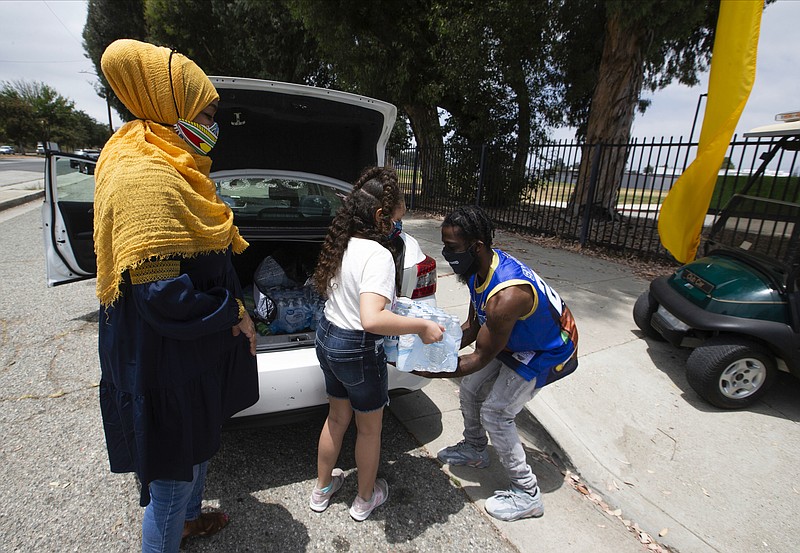As a young student, Hind Makki recalls, she would call out others at the Islamic school she attended when some casually used an Arabic word meaning "slaves" to refer to Black people.
"Maybe 85% of the time, the response that I would get from people ... is, 'Oh, we don't mean you, we mean the Americans,'" Makki said during a virtual panel discussion on race, one of many organized in the wake of George Floyd's death.
"That's a whole other situation about anti-Blackness, particularly against African Americans," said Makki, who identifies as a Black Arab Muslim.
In recent weeks, many Muslims in the U.S. have joined racial justice rallies across the country and denounced racism in sermons, statements and webinars. American Muslims, Black and non-Black, are also having raw conversations like Makki's as they grapple with questions of racial equity, tensions and representation in their own faith communities.
Muslims in America are diverse. No racial or ethnic group makes up a majority of Muslim American adults, and 20% are Black, according to a 2017 survey by Pew Research Center.
Margari Hill, executive director of the Muslim Anti-Racism Collaborative, says she has seen a surge of interest, questions and demand from Muslim communities for her expertise: Can she look at a statement or provide topics for a program? Are there resources in Arabic or Bengali? Is it more appropriate to say Black or African American? Can she talk about anti-Blackness?
"There's been a lot of calling out and calling in and deep reflection," she said. "We're asking people to be committed to, like, unlearning, you know, and building authentic relationships" that last beyond the current moment.
Questions about how much change the flurry of discussions can spark echo those about a larger, national reckoning.
"The openness of all different corners of the Muslim community to have this conversation in a really robust way is unprecedented and it is commendable," said Imam Dawud Walid, executive director of the Michigan chapter of the Council on American-Islamic Relations. "The challenge is when the protests eventually fizzle and the next calamity hits our country, will the conversation continue within the Muslim community?"
For this not to be a fleeting moment, Walid said, the makeup of leadership at national Islamic organizations must be more representative. He and others have called for more Black Muslim speakers, and not just to talk about race or only during Black History Month.
At the Islamic Society of North America, where the current elected board of 10 directors has no Black members, executive director Basharat Saleem said the organization has been working to boost diversity but acknowledged that more must be done.
Black Muslims have been well represented as speakers at society events, he said, but attendance by people from that community at annual conventions has been low.
"We have to do more work to basically reach out to the community," Saleem said.
Ubaydullah Evans, resident scholar for the American Learning Institute for Muslims, credits younger Muslims with doing a lot of work challenging racial inequality. He hopes "we get the maximum mileage out of this moment," but says some Black American Muslims "have been hurt so badly that it's hard for them to summon that trust."



